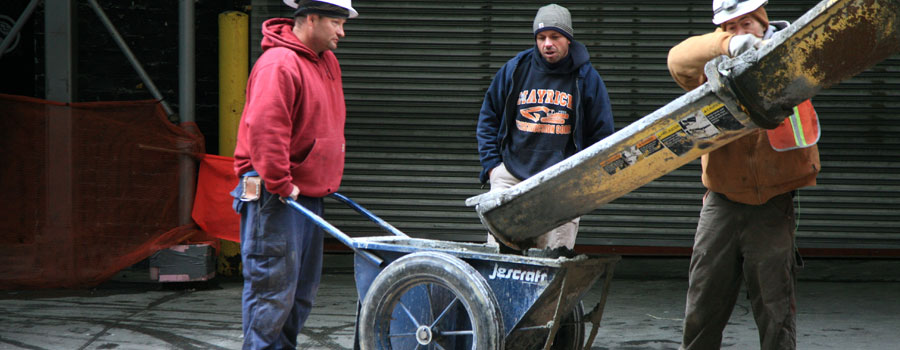Blog Post

You will likely have to work with a third party or concrete supplier during a construction project, whether you are a commercial construction manager, a DOT contractor, or just a homeowner. A project's success often depends on third parties like suppliers, vendors, contractors, subcontractors, or consultants.
When choosing a third party or a supplier, you have a lot to consider. The following are the most important factors to consider when choosing a supplier.
1. Do the goals of the supplier match your own?
When determining if a concrete supplier could be a good fit, it's essential to ask about their mission, values, goals, and company culture. When a company's values match yours, it's usually a good sign that you can work well together. Differences in the project's overall mission, values, goals, and culture could sometimes lead to conflict.
2. Does the provider have experience?
Ask the concrete supplier if they have experience and, if so, what kind of experience they have. Is it related to business? When a supplier has been in business for a long time, it's a good sign that they also have the expertise, which will add value to your project and make things go more smoothly.
3. Does the provider say that they can be flexible?
When it comes to building projects, there are a lot of unknowns and changes that can happen, so everyone involved needs to be flexible. It's important that a concrete supplier can work with you, stay relaxed, and adapt to changes. Remember that it's easy for a supplier to make a claim, but reviews and past work can often tell you more about how they work.
4. What kind of quality of product or service does a supplier offer?
Dig deep to find out how good the product or service the supplier offers is. It should be clear that your supplier's quality directly affects your project as a whole. Again, look at reviews and past work to get a good idea of how good a supplier is.
5. Will the supplier make the project better?
All the things we've talked about so far affect how valuable a supplier is to your project. Does the supplier's reputation for being experienced, flexible, and providing quality fit with how you want your project to be seen? Look at how much value the supplier could add to your project, and then decide what to do. Remember that there is a price to pay for a good concrete supplier.
6. Taking everything into account, is the cost from the supplier fair?
Lastly, when everything is taken into account, is the price the supplier is asking for fair? Are their product or service and their total cost of opportunity worth it? And does that price fit into your project budget?
Are you still trying to determine your ability to choose a good concrete supplier? For more such details and clarifications connect with Save Time Concrete in London!